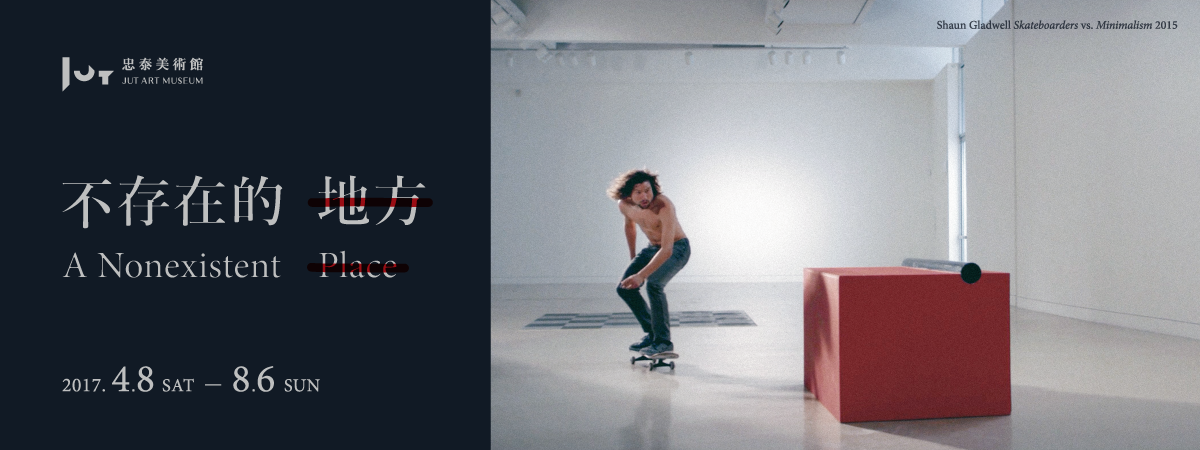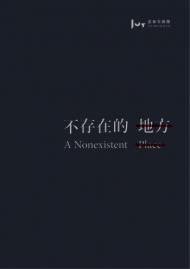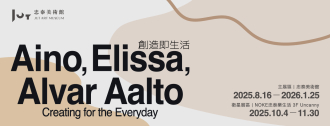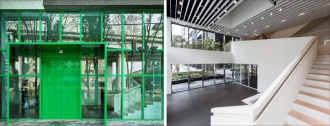Curatorial Statement
Paradise is an island. So is hell. —Judith Schalansky
Creatio ex nihilo, one of the arts’mesmerizing qualities, makes artistic origination per se nothing short of religious ceremonies that radiate a fantastic, mysterious and sacred aura. As the captain of their own religions and worlds, artists exude endless creative energy in their domains where they can get their will done one way or another and turn ordinary materials into strokes of genius, through which they transcend the worldliness and their careers achieve apotheosis. Each of their creative practices is little more than the Genesis. It is the first time as well as the last. Each creative process embodies the cycle of birth, aging, illness and demise, an inevitable fate written in the stars. It is as powerful as the Creator and meanwhile as susceptible as sentient beings. To embark on a new creation, artists must face the vast spiritual wilderness that emerges from nothing and stretches endlessly into the distance. It implies that artists must, without exception, set out on an epic journey into the unknown where they search, explore new places and blaze new trails through all difficulties, thereby constructing magnificent palaces, splendid castles and blossoming gardens that serve as the perfect and consummate places where they can temporarily dwell before going on another solo voyage in a nomadic style.
In history, artists par excellence, along with their tours de force, have bequeathed the human civilization innumerous precious creations, legacies and documents. The sui generis state of their existence bear more than a passing resemblance to the description by German writer Judith Schalansky of every unique islands in her literary masterpiece Atlas of Remote Islands: Fifty Islands I Have Never Set Foot On and Never Will, that is, each of them has its own historical past, real state, life condition and fictional story that arouse people’s curiosity about it. In the magical plot in which the real and the virtual brilliantly intersect with each other, the author projected her untrammeled imagination to construct individual identities for these remote islands, guiding the readers to grasp the raisons d’être, values and engrossing life-stories of the islands dwellers such as kings, slaves, migrants, rebels, non-volunteers, immoralists and idealists. Although these islands are nothing but contingent combinations of symbols, lines and scientific data, they live a one-of-a-kind existence beyond people’s limited intellectual horizons in a way that the stars and galaxies in the universe do. These places are nonexistent in personal real-life experiences though, they have become alluring holds on human imagination.
Artists are dead ringers for the remote islands on the map of human mind. They isolate themselves from the fertile lands on which the multitudes physically and mentally survive and thrive. On the sea at the world’s edge out of our reach, artists make valiant efforts to weather the storms and loneliness with their artistic practices and a paucity of resources. They are the creators of everything, the explorers of human mind, and the pioneers on these islands. They clear new paths through the curtains of mist and connect themselves with the external world with ceremonies, rites, enchantments and skills. They summon us to these strange territories and help us open our inner eye, unfolding their exuberant life experiences and great creativity by virtue of artworks that offer us magnificent scenery beyond our ordinary sight.
Artworks seldom tell us about how their creators experienced a complex set of emotions such as the senses of hollowness, doubt, loss, confusion, joy, ecstasy, achievement and all that in the creative processes, nor can they help us understand how artists managed to build those nonexistent places, namely the utopias they have never set foot on, step by step from the intricate maze of their mental states. The arts, as nonexistent places, are as mysterious as crystalline. They show us directions like a key, a compass or a map does. As spectators, all what we can do is to empathize ourselves as much as possible with the expressions shown and charms oozed by artworks, thereby approaching and landing on these remote islands in the measureless ocean, the nonexistent places, where we will be ready to embark on a fantasy adventure through which we get to understand both the external world and our innermost feelings by looking inwards and outwards. Curator/Sean C.S. Hu
Date: 8 April – 6 August 2017
Curator: Sean C.S. Hu
Exhibiting Artists
Shaun Gladwell (Australia), Leandro Erlich (Argentina), Gregory Crewdson (U.S.A.), Goang-Ming Yuan, Ya-Lun Tao, Kuang-Yu Tsui, Takahiko Suzuki (Japan), Rachel Maclean (U.K.), Chao-Hao Liao (Taiwan), Hsien-Yu Cheng and Hui-Yu Su (In the order of the number of strokes in Chinese surnames.)
Events
|
Event |
Date |
Venue |
Keynote Speaker |
Admission |
|
Thematic Talks |
8 April 2017 |
JUT Headquarter |
Leandro Erlich |
Free admission |
|
10 June 2017 |
Rachel Maclean |
|||
|
Night Talks |
20 May 2017 |
Eslite Bookstore |
Hsien-Yu Cheng |
Free admission |
|
27 May 2017 |
Ya-Lun Tao |
|||
|
3 June 2017 |
Goang-Ming Yuan |
Organizer: JUT ART MUSEUM
Coordinator: Hu’s Art Company
Official Display Partner: SONY
Event Partners: MOT CAFÉ, Eslite Bookstore
Exhibition Team
Organizers: Aaron Y. L. Lee, Alex Y.H. Lee, Lea Y.C. Lin
Managers: Huang Shan-Shan, Tsai Yu-Hsien
Coordinators: Chan Hua-Tzu, Chang Yu-Chen, Fu Ya, Peng Hsiao-Ting, Cheng Ying-Chih
Promotion: Lee Pei-Yi, Hsieh Meng-Jung, Hsu Singer
Visual Designers: Tseng Hui-Yu, Rita Peng
Lighting Designer: Ho Chung-Chang
Administrators: Chen Kuan-Jin, Wu Ting-Yun




